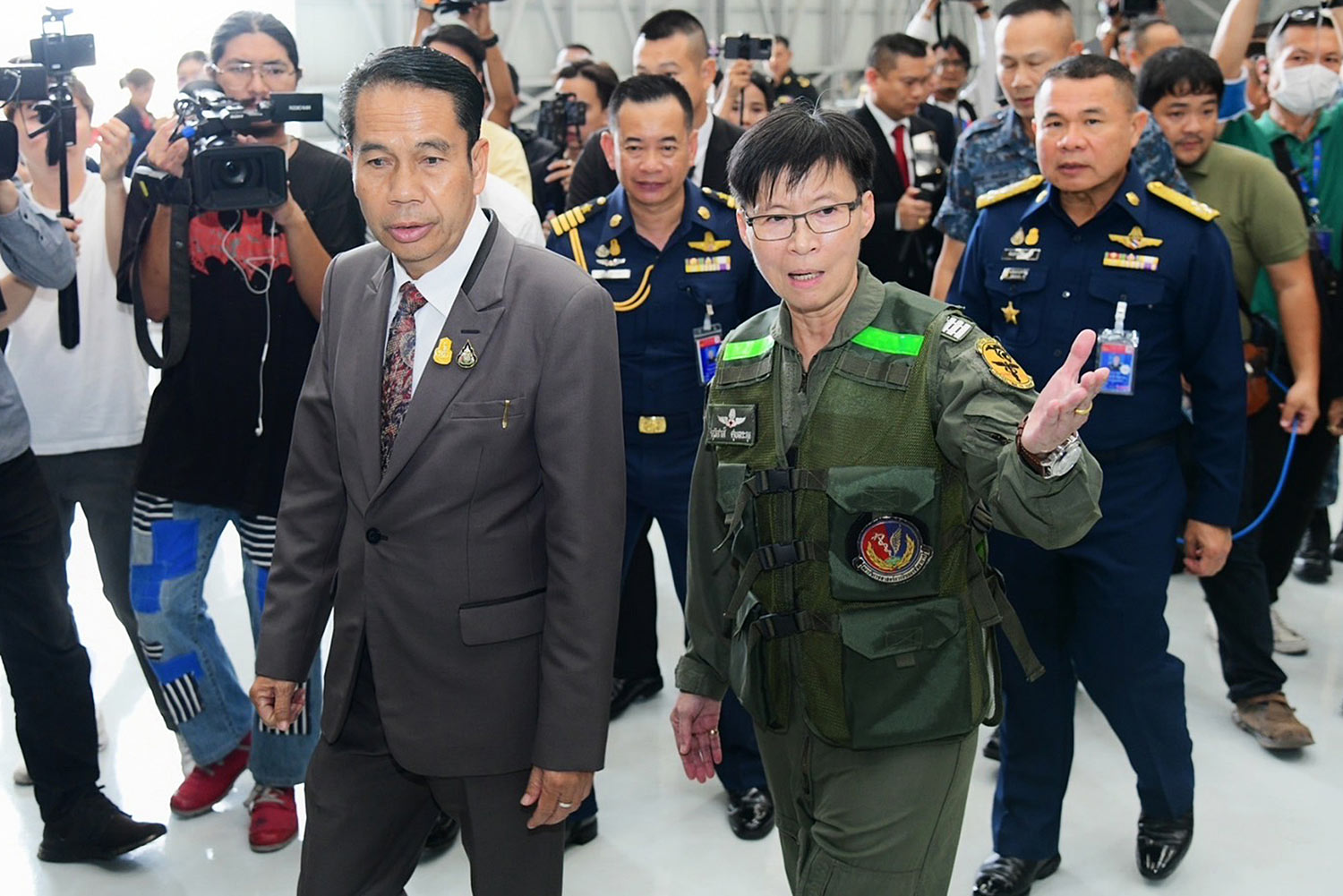
Nupha Phansa-at, 63, still left in a state of shock after learning that her son, Somkhwan, who had gone to work on a banana plantation in Israel, was probably one of the workers killed in an attack carried out as a new round of the Israel-Gaza conflict erupted on Saturday.
Her daughter, Somkhwan's older sister, called Ms Nupha at 4am on Sunday to inform her that she had seen some pictures of the victims' bodies on social media, and one had looked like Somkhwan.
And as soon as Ms Nupha was shown the picture, she recognised her son's shirt and trousers and knew her worst fears had been realised.
The shocking news was followed by numerous visits from various local officials who came to Ms Nupha's home in tambon Khamin in Kalasin's Muang district to offer moral support and discuss ways to bring Somkhwan's body back to Thailand for the funeral.
"Before the bad news came, my son, who usually called me on the phone from Israel, recently told me the situation there was unusual. I then told him to come home," she said. "I didn't want his money but him to come home safe."

Evacuation briefing: Defence Minister Sutin Klungsang is briefed on the air force’s transport capabilities during his visit to inspect the force’s readiness to evacuate Thais stranded amid the conflict between Israel and the Palestinian militant group Hamas. (Photo By ROYAL THAI AIR FORCE)
After that conversation, his mother later learnt that her son had fallen ill and planned on discussing a return home with his Israeli employer. It was a conversation he was never to have.
Somkhwan, a former soldier, left Thailand on Nov 9 last year for a five-year work contract in Israel after getting married and moving to Nakhon Phanom.
He borrowed 120,000 baht to pay for the trip to Israel, where he earned 80,000 baht a month, his mother said.
Suphachai Waengkham, a senior official at Kalasin's Office of Employment, said 121 out of the 230 workers from the province who went to work in Israel lived and worked in the south of the country near where the violence took place.
In Chaiyaphum, Sombat Traisak, deputy provincial governor, revealed on Monday that 772 workers from this province have gone to work lawfully in Israel while authorities continue to work on identifying an additional group who did so illegally.
In Phu Khieo district of Chaiyaphum, Sairung Miwut was fortunate enough to reestablish contact with her husband, Worachet.
In a video call with Worachet, who works as a webmaster, Ms Sairung expressed her wish for him to come home immediately despite his wanting to see how the situation plays out first.

"Let me stay here for a while longer. Many others are likely to do the same as we all need more money to send back home. I can't really say when I will leave Israel. I will have to wait and see," Mr Worachet was heard telling his wife during the video call.
In a village in Nakhon Phanom's Phon Sawan district, Sa Tonsoki, 58, mother of Phatthayut Tonsoki, 40, still hasn't been able to reach her son since the attacks erupted.
The Bangkok Post on Monday talked to Natthawut Nakmao, a 30-year-old Thai worker in Israel and Nakhon Ratchasima native, by video link.
He said he was safe and still working as he lived in an area far away from the violence. However, he said he was very much concerned about the safety of a fellow worker from the same village in Nakhon Ratchasima who was working in the war zone.
Mr Natthawut said he hasn't been able to contact his friend Phongsathon ever since the attack started.
Unfortunately, a man identified as Phongsathon was named among the 11 Thai workers taken hostage during Saturday's attacks, said Atsuek Chanahan, acting Nakhon Ratchasima governor.
A check of the official record of Thai workers in Israel showed there is only one Phongsathon who is actually from Nakhon Ratchasima, he said.
The worker's last name is Khunsi, and he is 25 years old, said Mr Atsuek, adding that this particular worker had lived and worked in southern Israel for over a year before Saturday's attack.
Now, the family of this Phongsathon in Nakhon Ratchasima have their fingers crossed and are anxiously hoping their relative isn't the same Phongsathon being held hostage.
A total of 2,163 workers from Nakhon Ratchasima took up agricultural work in Israel, said Mr Atsuek.